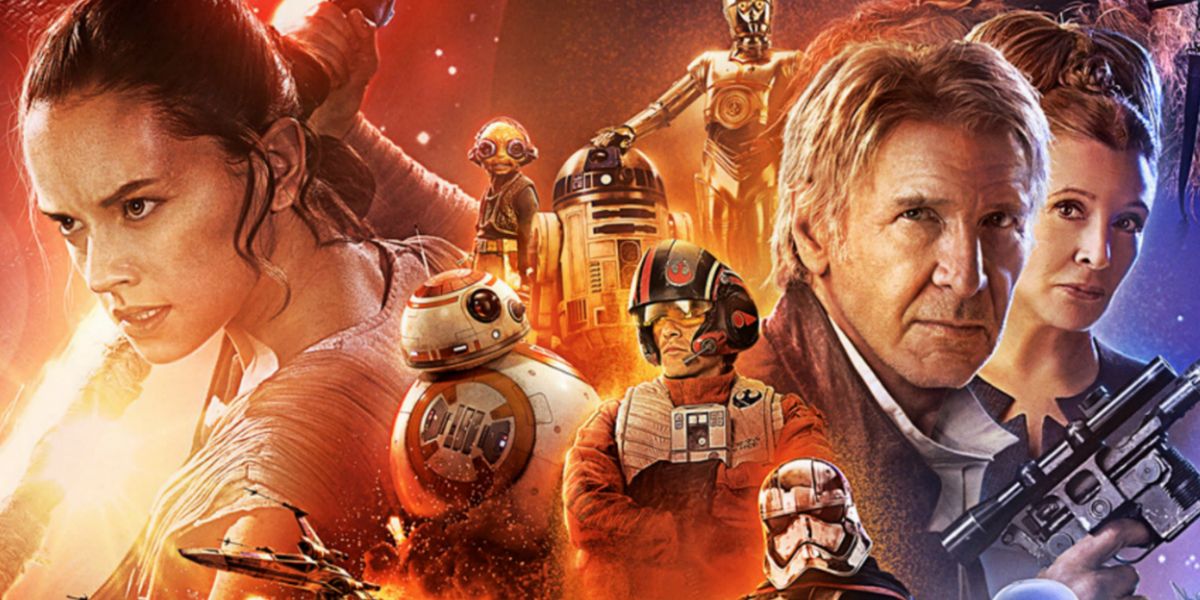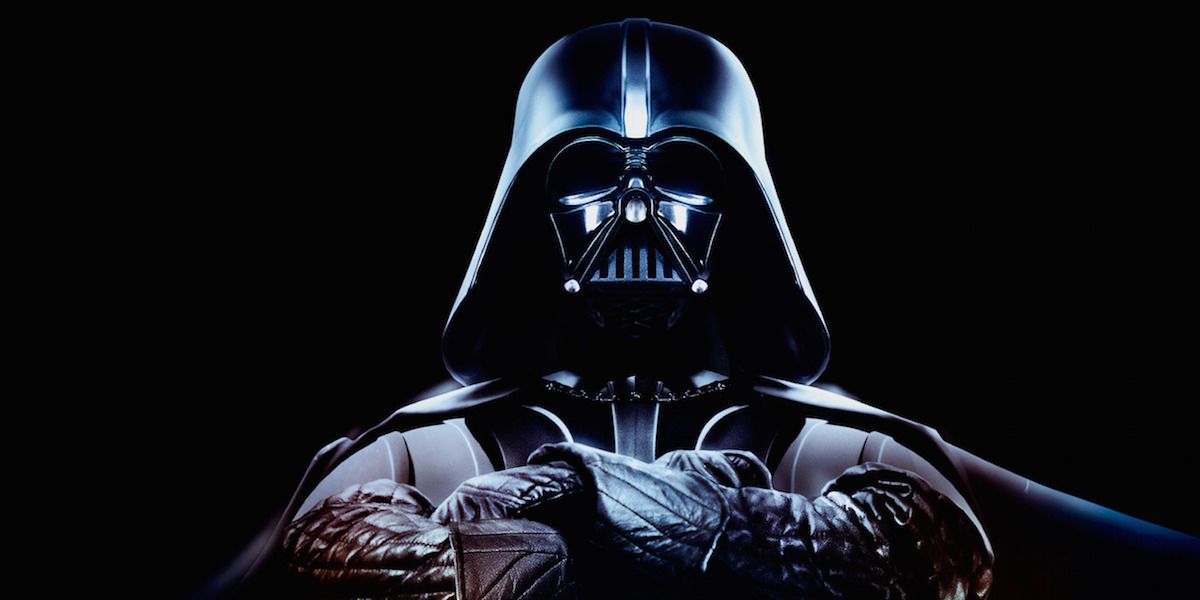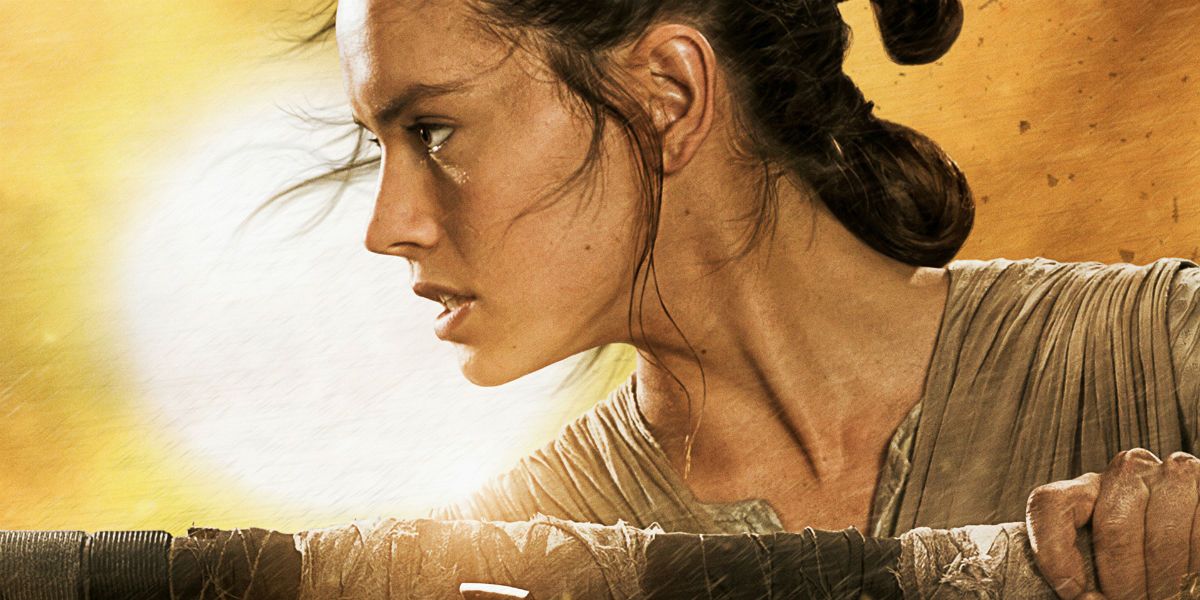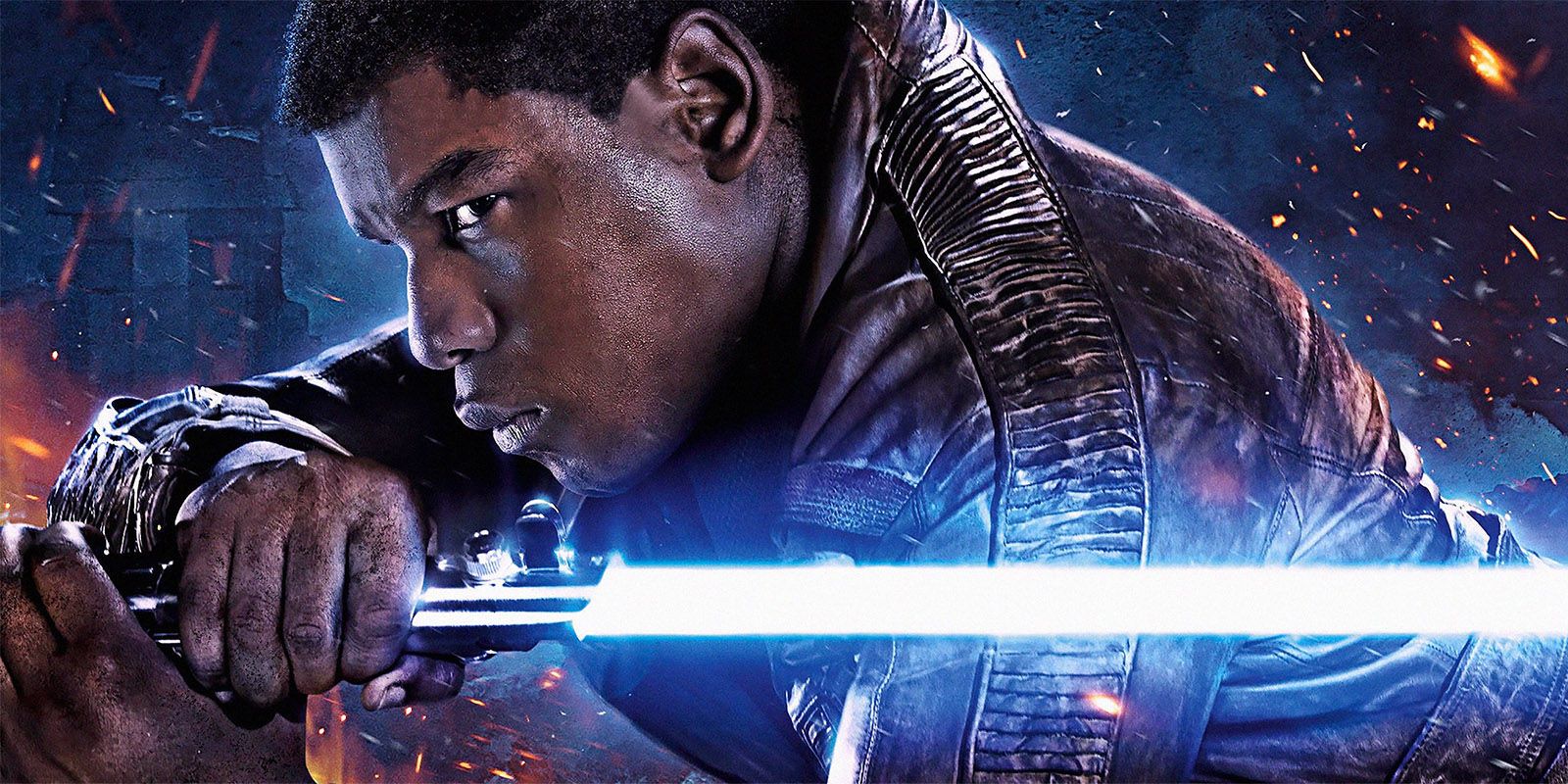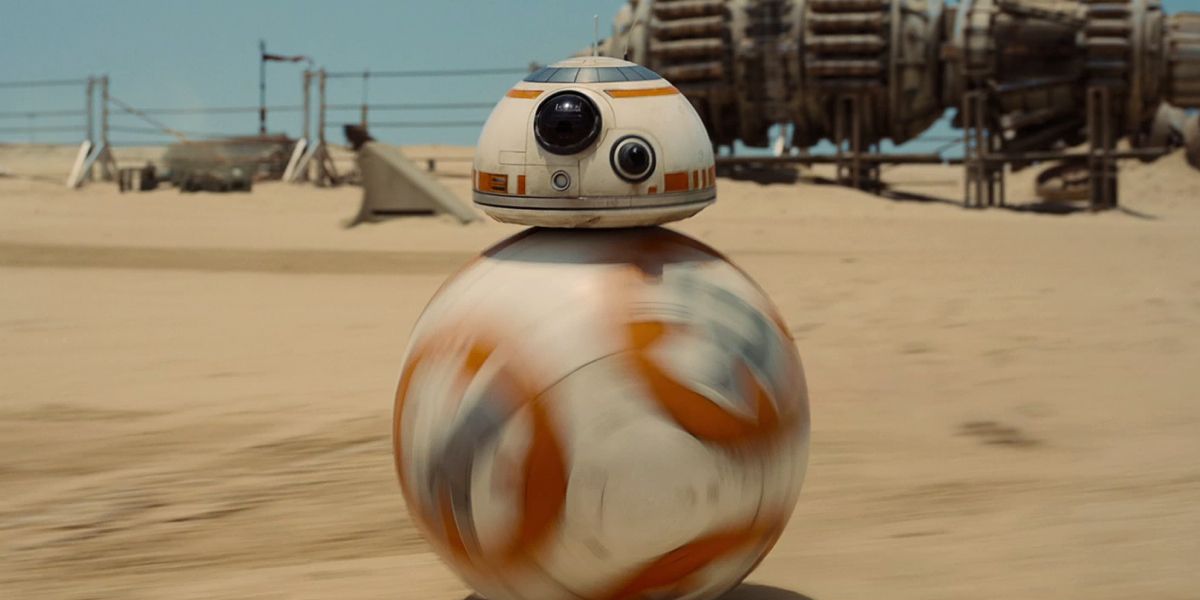One of the most beloved film franchises in world history, Star Wars has returned to record-setting critical and commercial success with The Force Awakens. When it was first announced that Disney was set to purchase Lucasfilm, and revive the series for a new trilogy (as well as spinoffs), fans were eager to see exactly what the Mouse House was going to deliver. The production company had enjoyed unprecedented success with the Marvel shared movie universe, earning a lot of geek cred in the process, but Star Wars was another challenge altogether - given that Disney didn't just have to deliver a quality film, they had to deliver a movie experience worthy of continuing the Skywalker story.
Prequels presented their own set of hurdles and problems for George Lucas to solve; however, revisiting iconic characters like Luke, Han Solo, and Leia Organa also meant potentially undermining fan nostalgia - especially if the Star Wars 7 story didn't turn out to be better than those created as part of the now sidelined Expanded Universe. With the release of The Force Awakens, fans now know how they feel about what director J.J. Abrams has delivered - and, in spite of overall positive response (read our Star Wars 7 review), Episode 7 still has plenty of detractors (with logical reasons to be critical). Similarly, while the original trilogy remains revered by fandom, Episodes 4 - 6 also had its detractors - as we were recently reminded in a vintage review-off between John Simon, Gene Siskel, and Roger Ebert back from 1983.
In the lead-up to Episode 7, fans of the Galaxy Far, Far Away had been circulating a number of retro Star Wars videos (toy commercials, interviews, and recut trailers), including footage from an ABC Nightline segment in which Siskel and Ebert debate Simon's harsh criticism of Return of the Jedi (as well as the larger Star Wars film series).
Check out the segment in full below:
Previously, we've asked the question: Are film critics right or wrong about movies? Central to that debate is Simon's argument - specifically, the assertion than an entertaining movie isn't necessarily a good movie. Even though a lot of movies manage to be both.
No doubt, Simon wasn't doing himself any favors in the Nightline segment, jumping between dismissing the Star Wars films as stupid entertainment made for kids while at the same time holding the movies to the standard of an Oscar-bait character drama or literary classic (Huck Finn). As a result, right or wrong, Simon's argument falls flat, because the critic is too busy embodying the mindset of high-brow, no fun, film reviewers that turned-off an entire generation of moviegoers - moviegoers who now believe most (if not all) critics are out of touch and do not represent the tastes or interests of regular moviegoers. Still, despite a lambasting at the hands of Siskel and Ebert, who definitely come out of the exchange looking down to earth by comparison, Simon raises an interesting question: are the Star Wars movies good or are they just very entertaining?
NEXT PAGE: What Makes Star Wars Movies Great
It doesn't necessarily help or hurt Simon's argument, but it's interesting that the critic compares Star Wars to Disney cartoons - eliciting Ebert to assert: "These are the films that Disney should be making." Since Disney is now, literally, making Star Wars movies, it's safe to say the Mouse House has recognized the power of Star Wars (and Marvel) as brands that can entertain a new generation of moviegoers, just as Mickey and Minnie Mouse did before them. Disney has delivered countless memorable characters along with several classic films but a Disney production credit is not automatically a stamp of ambitious filmmaking either. Using an admittedly tired comparison, just because fast food is popular, and tastes good, doesn't mean that it's good for consumers. Even Gene Siskel is reluctant to call Star Wars: Return of the Jedi "great filmmaking," settling on a carefully worded endorsement as "Very good of its kind" - suggesting that the film is a great kids movie; though, again, not going so far as to say that Episode 6 was an all-around great movie for adults.
Still, ever since A New Hope premiered, audiences have been dazzled by the imaginative world that George Lucas had developed - as well as the innovative special effects that made those creations come to life on the big screen. But, setting aside technical achievements and the core Star Wars concept, while trying to remain aware of how nostalgia might tint our view of the original trilogy, is Star Wars, as Simon suggests, an inferior movie experience? Without question, it's easy to pick-out eye-rolling lines or goofy situations within any Star Wars movie (including The Force Awakens) - given that the films feature everything from shiny gold robots to space wizards to tribal teddy bears. Yet, as Siskel and Ebert assert, there's a level of sophistication and creativity present in Episodes 4 - 6, especially, that set the films aside from similar sci-fi offerings (sorry about your luck Space Hunter: Adventures in the Forbidden Zone).
No doubt, opinions will differ on the subject in combination with how a particular viewer feels about individual Star Wars movies (or the place of escapism films within a larger discussion of cinematic artistry). Though, just as Siskel drew a comparison to Space Hunter three decades ago, the same success can be attributed to The Force Awakens today - whether or not a moviegoer thinks Episode 7 is mostly kid stuff, there's little doubt that the film is more entertaining, with richer characters, and more insight into real-life human struggles, than many other science-fiction films of our time. Similarly, while some critics still consider Star Wars 7 to be a remake of Episode 4, at the very least The Force Awakens has inspired a return to practical effects in blockbuster filmmaking. J.J. Abrams learned from the prequel trilogy's CGI-heavy pitfalls and injected some movie magic through inventive use of real-world effects.
Costumed actors dressed as aliens and non-CGI bread rising might not sound like the sexiest evolution of filmmaking; however, it's clear that Disney set out to do more than just entertain kids - meaning there must be more to Star Wars than just "primitive senses" of good and evil. In the Nightline clip, Simon claims there's nothing "real" about Star Wars, that there's nothing to become "invested in." That might have been the case at certain points in the franchise; yet, it's apparent that moviegoers young and old have become invested in Star Wars and its characters (even the robot ones) - for a variety of reasons.
Ultimately, filmmaking like any entertainment and/or artistic medium, is subjective- meaning that there will always be disagreement. Even the "normal standards," as Ted Koppel calls them, by which we judge films have become a divisive topic - redefined and reframed over and over as filmmakers push boundaries in the industry. As a result, if the guidelines for determining what makes a film great is ever-changing, it's impossible to arrive at a definitive answer. While some viewers will find valid reasons to exclude Star Wars from their list of "great" films, there's a very strong argument to be made that the films, at least as a larger experience, bigger than any one installment are great - and Ebert laid out that argument thirty-years, and four Star Wars films, ago: "I spent a lot of my Saturday matinees watching science fiction movies and serials and having a great time - and being stimulated and having my imagination stimulated and having all sorts of visions take place in my mind that helped me become an adult... and still stay young at heart. I would say not that I'm childlike at heart but that [Simon] is old at heart."
This isn't to say that all blockbuster movies should get a pass and that any criticisms are invalid - because there are plenty of objectively bad popcorn films, no matter how we, as reviewers and fans, differentiate between good, bad, and great. Nevertheless, the enduring passion for Star Wars suggests there is something inherently great about them - beyond entertainment value alone. There are criticisms that can be raised against The Force Awakens, criticisms that are worth discussing, but it's hard to argue with the film's unifying power: the ability to bring together returning fans and new Jedi-lovers alike, regardless of age, for an adventure that stimulates the imagination, is certainly an indicator of something great - even if that greatness is hard to interpret by "normal standards."
NEXT: Are Film Critics Right or Wrong About Movies?
Star Wars: Episode 7 – The Force Awakens is now in theaters, and will be followed by Rogue One: A Star Wars Story on December 16th, 2016, Star Wars: Episode 8 on May 26th, 2017, and the Han Solo Star Wars Anthology film on May 25th, 2018. Star Wars: Episode 9 is expected to reach theaters in 2019, followed by the third Star Wars Anthology film in 2020.

